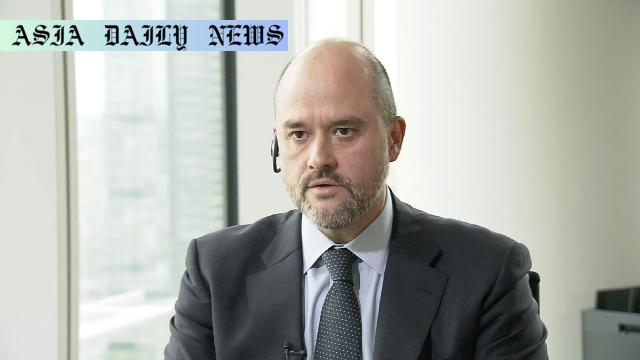Nissan Restructuring: Nissan Motors unveils a plan to reduce factories from 17 to 10 by 2027 and focus on sustainable growth.
Nissan announces plans to reduce its factories from 17 to 10 by 2027.
CEO Ivan Espinosa emphasizes transparency amidst workforce cuts.
Focus will remain on new technologies like EVs and self-driving systems.

Nissan’s Strategy: A Bold Vision for Greater Efficiency
Nissan Motor has announced an ambitious restructuring plan to reestablish itself as a formidable player in the global automotive industry. After suffering a remarkable net loss in the last fiscal year, the Japan-based automaker is determined to make drastic changes to stabilize its financial position. Nissan’s President and CEO, Ivan Espinosa, stressed the necessity of these changes in an exclusive interview with NHK, referring to the moves as necessary for ensuring the automaker’s long-term growth and sustainability.
The headline decision that emerged from this announcement is Nissan’s plan to reduce its global manufacturing footprint. By 2027, the company aims to cut the existing number of factories from 17 to 10, which will inevitably affect employees, suppliers, and local communities. Espinosa acknowledged the anxiety this move may spark in various regions but vowed to maintain transparent communication during this pivotal period. These closures reflect Nissan’s intention to enhance operational efficiency, removing redundancies and realigning its production portfolio with market demands.
Tough Decisions: Workforce Reductions and Factory Closures
While restructuring is crucial for survival, Espinosa openly admitted that workforce reductions will be an inevitable part of the process. He conveyed deep regret about the necessity of implementing these cuts but emphasized that these measures aim to safeguard the livelihoods of many other employees and their families. His commitment to employee welfare amidst difficult decisions reflected the gravity of Nissan’s current challenges.
Factory closure decisions will be based on multiple parameters, including output efficiency, the timing of new vehicle model rollouts, and the retirement of outdated products. Espinosa indicated that the specifics of which factory locations will face closure remain undecided. He further emphasized that the decisions will align with Nissan’s broader transformation and modernization goals, with a strong focus on sustainability, electric vehicles (EVs), and integrated software technologies.
Innovation and Growth Beyond Restructuring
Despite the upheaval, Espinosa highlighted that Nissan has a strong foothold in industry-leading technologies, including EVs and autonomous driving systems. The company remains committed to investing heavily in research and development to solidify its competitive advantage. By leveraging groundbreaking advancements in software and self-driving capabilities, Nissan aims to create next-generation vehicles while fostering long-term customer satisfaction.
Continuing its innovation-focused journey, Nissan is betting on these investments to reinvigorate its market share and establish itself as a pioneer in sustainable automotive solutions. These efforts are meant to ensure that, while the restructuring creates challenges, innovation and excellence will remain the cornerstones of the company’s future.
Sustaining Communities During the Transition
Nissan is acutely aware of the socio-economic ramifications associated with factory closures. Espinosa assured that Nissan aims to support local communities through transparent dialogue and initiatives to ease the inevitable transitions. Such considerations reflect the company’s overarching approach to balancing business needs with corporate responsibility.
In a fast-changing automotive industry marked by trends toward electrification and decarbonization, Nissan’s restructuring underscores its intent to proactively adapt, even if it faces tough decisions in the short term. This forward-thinking strategy not only enhances its efficiency but also ensures alignment with global environmental and market expectations.



Commentary
The Challenges of Change in the Automotive Industry
Nissan’s recent announcement marks a defining moment not only for the company but also for its employees, suppliers, and communities. The ambitious restructuring initiative promises to prepare the automaker for a competitive yet sustainable future. However, the pain of factory closures and workforce reductions cannot be understated. It is a stark reminder of the broader challenges automakers face in a rapidly evolving global market dominated by electrification and advanced technologies.
Leadership and Transparency: Espinosa’s Approach
CEO Ivan Espinosa’s candid approach to addressing these developments deserves commendation. His emphasis on transparency throughout this restructuring process reflects strong leadership. It’s not easy to handle such a monumental shift, especially when the lives of thousands of people are directly impacted. Yet, Espinosa appears keenly aware of the importance of honesty and communication, ensuring stakeholders feel involved and informed rather than blindsided.
A Bold Step Toward a Technological Revolution
Nissan’s steps to reallocate resources highlight the automaker’s determination to align with future trends, especially its focus on electric vehicles and self-driving technology. In an industry undergoing significant transformation, staying ahead in innovation is non-negotiable. This proactive reimagining of its operational and manufacturing strategy may position the company as a leader in greener, tech-driven automotive solutions.
While this strategy comes at a cost, it represents the company’s resilience and adaptability. With cohesive planning, strong leadership, and community-focused communication, Nissan’s journey through restructuring could emerge as a turning point for the company, solidifying its place in the automotive landscape for decades to come.